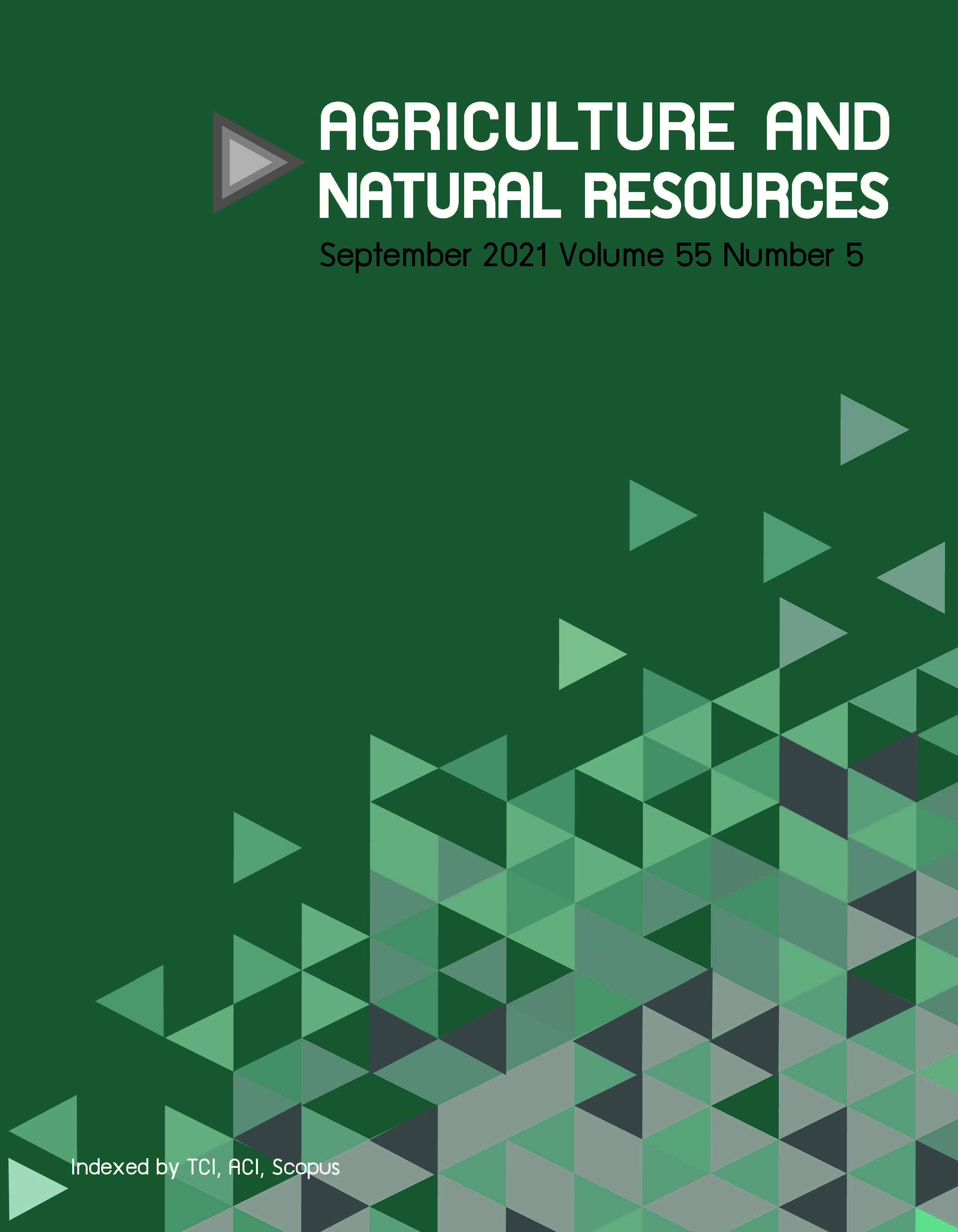Exploration of core endophytic bacteria from different organs of diploid Musa balbisiana and triploid Musa acuminata
Keywords:
Core endophytic bacteria, Musa acuminata, Musa balbisianaAbstract
Musa balbisiana Colla cv. Kluthuk (BB) is extensively cultivated because it is relatively resistant to biotic and abiotic stresses, while there have been difficulties regarding the cultivation of the less-tolerant cultivar Musa acuminata cv. Ambon (AAA). Furthermore, the composition of banana genomes has been reported to play an important role in resistance. Even though their microbiome is involved also in plant adaptability and survival, no analysis has been performed to compare the bacterial composition and its role between resistant and susceptible cultivars. Hence, this study determined the core endophytic bacteria in the Kluthuk and Ambon cultivars growing in loamy sand (LM) and silt loam (SL) soil types. The banana organs (roots, corm and petiole) were subjected to 16S amplicon sequencing. The data obtained showed that the Proteobacteria, Actinobacteria, Firmicutes and Acidobacteria dominated all organs in both cultivars at the phyla level, while Bacillus, Gaiella and Sphingomonas dominated at the genus level. Interestingly, cv. Ambon had a lower number of core endophytic bacteria compared to cv. Kluthuk. Pseudomonas was discovered pre-eminently in the corms and petioles, followed by Bacillus in all organs of Kluthuk. Conversely, the same genera were depleted in Ambon, and instead, high levels of Brevibacillus and Acinetobacter were detected mainly in the roots. This was the first examination of the core endophytic bacterial distribution between these cultivars, which is also necessary for further banana resistance development through amendment of the bacteria.
Downloads
Published
How to Cite
Issue
Section
License
Copyright (c) 2021 Kasetsart University

This work is licensed under a Creative Commons Attribution-NonCommercial-NoDerivatives 4.0 International License.
online 2452-316X print 2468-1458/Copyright © 2022. This is an open access article under the CC BY-NC-ND license (http://creativecommons.org/licenses/by-nc-nd/4.0/),
production and hosting by Kasetsart University of Research and Development Institute on behalf of Kasetsart University.







